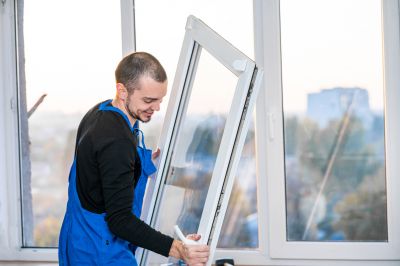Leading Tools And Products For Storm Damage Recovery
Equip yourself with high-performance solutions designed to simplify and speed up the storm restoration process.
 Storm restorations in Elgin, IL, often require a variety of specialized products to effectively repair and reinforce structures affected by severe weather. From damaged roofing materials to water intrusion barriers, the right selection of products can significantly influence the success of restoration efforts. Understanding the different types of products available helps homeowners and contractors make informed decisions tailored to the specific challenges posed by storms in the Illinois region.
Storm restorations in Elgin, IL, often require a variety of specialized products to effectively repair and reinforce structures affected by severe weather. From damaged roofing materials to water intrusion barriers, the right selection of products can significantly influence the success of restoration efforts. Understanding the different types of products available helps homeowners and contractors make informed decisions tailored to the specific challenges posed by storms in the Illinois region.
Top Overall Option
Heavy-Duty Roofing Membranes
Heavy-duty roofing membranes are versatile and durable materials designed to provide a reliable barrier against water and wind intrusion. They are often used in storm restoration projects to reinforce or replace existing roofing, offering flexibility in application and compatibility with various roof types. These membranes are known for their resistance to tearing and weathering, making them a practical choice for long-term protection in storm-prone areas.
Types of Products For Storm Restorations
Roofing Shingles and Panels
Various types of shingles and panels designed for storm resistance, including impact-resistant options and reinforced materials.
Waterproofing Sealants and Coatings
Products that create a waterproof barrier on roofs, walls, and foundations to prevent water intrusion during heavy rains.
Storm-Resistant Doors and Windows
Impact-resistant doors and windows engineered to withstand high winds and flying debris.
Structural Reinforcement Hardware
Brackets, straps, and braces used to reinforce building frameworks against storm forces.
Gutter and Drainage Systems
Enhanced gutter systems and drainage solutions to manage heavy rainfall and reduce water damage.
Siding and Exterior Wall Panels
Impact-resistant siding materials designed to endure storm conditions and minimize damage.
Emergency Repair Kits
Portable kits containing essential tools and materials for immediate storm damage mitigation.
Insulation and Vapor Barriers
Materials that help protect interior spaces from moisture and temperature fluctuations caused by storms.
Roof Ventilation and Exhaust Fans
Products that improve airflow and reduce wind pressure on roofs during storms.
Foundation Waterproofing Products
Sealants and membranes designed to protect foundations from water seepage and erosion.
Debris Removal Tools
Equipment and accessories for clearing storm debris safely and efficiently.
Temporary Coverings and Tarps
Heavy-duty tarps and covers used to protect damaged structures until permanent repairs can be made.
Lightning Protection Systems
Systems installed to safeguard structures from lightning strikes during storms.
Flood Barriers and Sandbags
Portable barriers designed to prevent floodwaters from entering buildings.
Dehumidifiers and Air Purifiers
Devices to control moisture and improve air quality after storm-related water intrusion.
Popular Choices
Windows designed to withstand high winds and debris impact, popular for storm-prone areas.
Water-resistant underlayment materials used beneath roofing shingles for added protection.
Gutter guards that prevent clogging and damage during heavy rainfall.
High-performance sealants used to reinforce vulnerable areas against water intrusion.
Doors with impact-resistant frames and panels designed for storm resilience.
Vents that allow water to pass through foundations without causing structural damage.
Generators that provide backup power during storm outages.
Removable or roll-down shutters that protect windows from debris and high winds.
Fastening hardware designed to secure building components during severe weather.
Sealants applied to foundations to prevent water seepage.
Equipment used to secure roofs and prevent uplift during storms.
Exterior siding materials engineered for impact resistance and durability.
Pumps used for removing water from flooded areas quickly and efficiently.
Paints formulated to resist moisture and weathering impacts.
Pre-packaged kits for reinforcing walls and roofs against storm forces.
Effective storm restoration involves not only repairing visible damage but also addressing underlying vulnerabilities that storms may expose. This includes selecting durable roofing materials that can withstand high winds and heavy rain, as well as waterproofing solutions that prevent future water intrusion. Additionally, safety equipment and structural reinforcements are essential to ensure the integrity and safety of restored buildings.
When choosing products for storm restoration, considerations such as material durability, ease of installation, and compatibility with existing structures are crucial. Properly selected products contribute to long-term resilience and reduce the likelihood of recurring damage. Local conditions, including typical storm patterns and weather severity in Elgin, IL, also influence the most appropriate product choices. Consulting with professionals experienced in storm restoration can help identify the most suitable solutions for each unique situation.
Key Buying Considerations
- Assess the specific storm risks common in Elgin, IL, such as high winds or flooding, to select appropriate products.
- Prioritize materials with proven durability and weather resistance suitable for storm conditions.
- Verify compatibility of new products with existing structures to ensure proper installation and performance.
- Consider ease of installation or professional assistance needed for complex restoration products.
- Evaluate the long-term maintenance requirements of storm-related products to ensure ongoing effectiveness.
- Check for product certifications or standards that validate their storm resistance capabilities.
- Determine the appropriate size and coverage area needed for your property to avoid under or over-application.
- Factor in the potential for future storms and select products that can withstand multiple events.
- Review local building codes and regulations related to storm damage repairs and product usage.
- Balance cost considerations with the quality and performance features necessary for effective restoration.
- Select products that provide flexibility for repairs and future modifications if needed.
- Ensure availability of replacement parts or additional supplies for ongoing maintenance.
- Consider environmental factors such as UV exposure and temperature fluctuations that may impact product longevity.
- Consult with local restoration professionals for insights on the most effective products for your specific needs.
